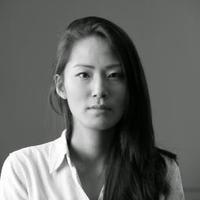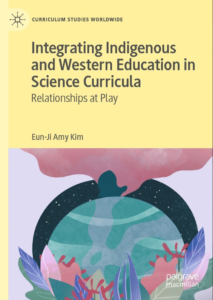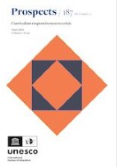Dr Eun Ji Amy Kim is passionate about using her position in academia to transcend labels and identities with a goal to do real work, that has genuine impact on communities and learning, no matter how small.
Rather than focusing on one form of cultural knowledge, her research seeks to better understand how we can communicate across cultures to obtain the best learning outcomes for all learners, regardless of background.
 Amy’s research portfolio is diverse, with three main strands of focus. The first is local Indigenous knowledge(s) within science education, which drew from her PhD focus, and engages with curriculum development and teacher education through a relationship-based approach.
Amy’s research portfolio is diverse, with three main strands of focus. The first is local Indigenous knowledge(s) within science education, which drew from her PhD focus, and engages with curriculum development and teacher education through a relationship-based approach.
The impetus for this research was drawn from Amy’s experiences in Winnipeg, Canada, where her family migrated to from South Korea. Winnipeg is characterised by a large urban Indigenous population.
“Some of my first friends in Canada were from Indigenous communities who taught me English and help me to survive in Canada. My interest in working in Indigenous communities really started from these friendships.”
In Canada, she became a science teacher and then education consultant for diverse First Nation communities across Canada.
Amy says:
“The aim for this work was to help non-Indigenous teachers see local Indigenous knowledge as scientific. The focus is developing curriculum that builds the appreciation of local knowledge for science education in collaboration with and guided by Indigenous communities and scholars.”
Amy migrated to Australia in 2020 to expand her perspective in International and Comparative Education. This developed her focus on research projects in the field of Global Citizenship Education (GCED).
Within GCED, Amy has been working on the project entitled, “Promoting Global Citizenship Education in the Asia-Pacific Region through a Whole school approach” with the UNESCO Asia-Pacific Region. This project aims to advance GCED in the Asia-Pacific region at school level. The team is currently developing a practical guide for teachers and school leaders.
Her third and newest research venture is virtual reality in science education. This is very new and currently she is writing a proposal about creating a virtual reality learning platform for regional communities in Australia.
Amy is interested in finding out what is meaningful and important for communities. On this work, she says:
“Virtual reality is happening, whether we like it or not, but it can also be a solution to a lack of physical and human resources for communities in regional areas. This is still in the conceptual phase, but we want to know what benefits children in areas with less access to resources. My research hopes to be a connecting mechanism for rural/regional/remote (RRR) communities; to reduce the digital divide and the education gap.”
Amy’s work in Indigenizing curriculum and virtual reality are complementary in the sense that they both focus on seeing local knowledge as an asset for a solution to a larger problem. This is an interface where Indigenous knowledge, conventional science and the application of technology can meet to improve knowledge development and learning outcomes.
She is currently running a project entitled, “Immersive Virtual Reality: Abstract idea to real experience.” In this project, she collaborates with software engineers and chemistry professors in developing a virtual reality program to promote conceptual changes for learning science.
Amy’s research focuses on trans-local relationships, cross-cultural communication and worlds outsides of communities, where we collectively play a role.
On this she says:
“If the people I work with feel they learned something in the process with me and somehow, I contributed, that is great. I want to contribute to a global learning community that is approaching a more harmonious and balanced way, that is inclusive rather than divisive.”
Read more about her work on Griffith experts and below:

Integrating Indigenous and Western Education in Science Curricula: Relationships at Play

Global citizenship education through curriculum-as-relations


